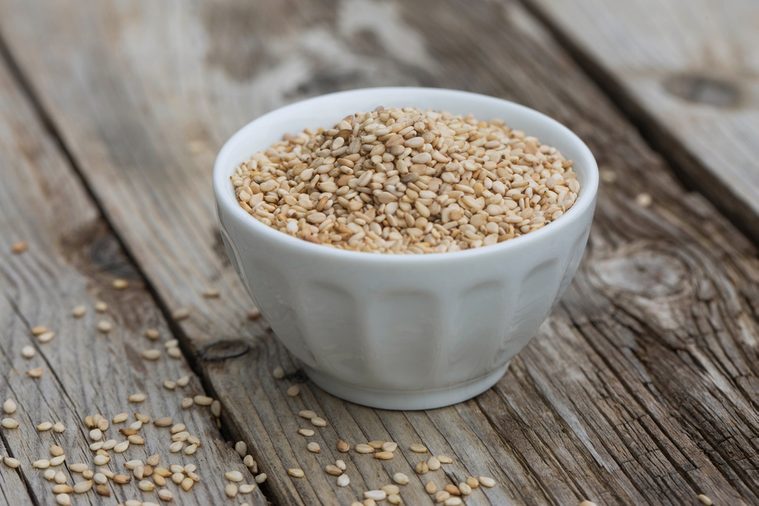
Constipation remedy: Sesame seeds
Sesame seeds make great home remedies for constipation, according to a study published in the International Journal for Research in Applied Science and Engineering Technology. The oily composition of sesame seeds works to moisturize the intestines, which can help if dry stools are a problem and provide constipation relief. Add the seeds to cereals or salads for crunch, or pulverize them in a coffee grinder and sprinkle on food like a seasoning. Curious as to why you’re stopped up? These are the surprising reasons that you’re constipated.

Constipation remedy: Molasses
One tablespoon of blackstrap molasses before bed should help ease your constipation by morning. The ingredient was studied by the Journal of Ethnopharmacology in 2019 on pediatric constipation with successful results. Blackstrap molasses is boiled and concentrated three times, so it has significant vitamins and minerals; magnesium, in particular, will help you achieve constipation relief. If you want to geek out on the topic of constipation, here’s the science behind why you can’t poop on vacation.
Constipation remedy: Fiber
Fiber acts like a pipe cleaner, scrubbing food and waste particles from your digestive tract and soaking up water. It adds bulk to your stool, giving the muscles of your GI tract something to grab on to, so they can keep food moving along. The Mayo Clinic suggests aiming for 20 to 35 grams of fiber a day to stay regular. Foods particularly high in fiber include bran cereals, beans, lentils, oatmeal, almonds, barley, many vegetables, and fresh and dried fruits. All of these things can be home remedies for constipation. If you’re constipated and taking in additional fiber, be sure to drink more water than usual to keep your stool soft and easy to pass. (Can constipation cause lower back pain? Find out.)
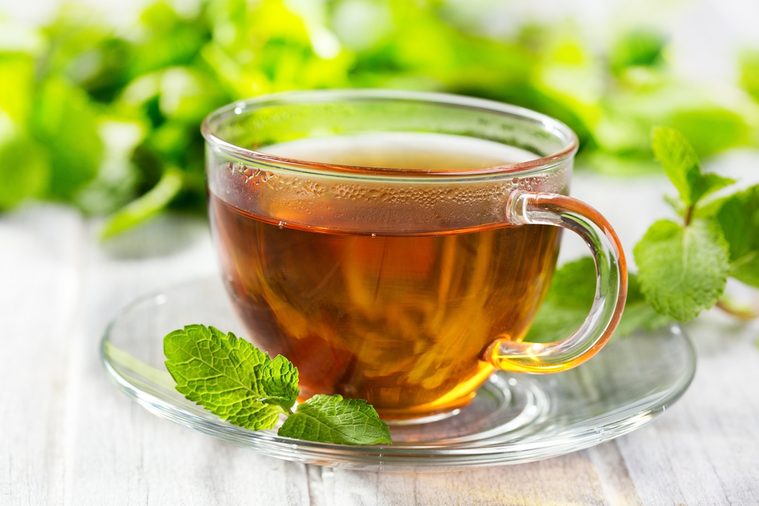
Constipation remedy: Mint or ginger tea
Mint and ginger are both proven home remedies to help alleviate a slew of digestive problems. Peppermint contains menthol, which has an antispasmodic effect that relaxes the muscles of the digestive tract. Ginger is a “warming” herb that causes the inside of the body to generate more heat; herbalists say this can help speed up sluggish digestion. Stephen Sinatra, MD, of HeartMD Institute recommends ginger in either capsule or tea form. In tea, the hot water will also stimulate digestion and provide constipation relief. Dandelion tea is also a gentle laxative and detoxifier. While these are the “good guys,” you’ll want to watch out for these foods that actually make constipation worse.
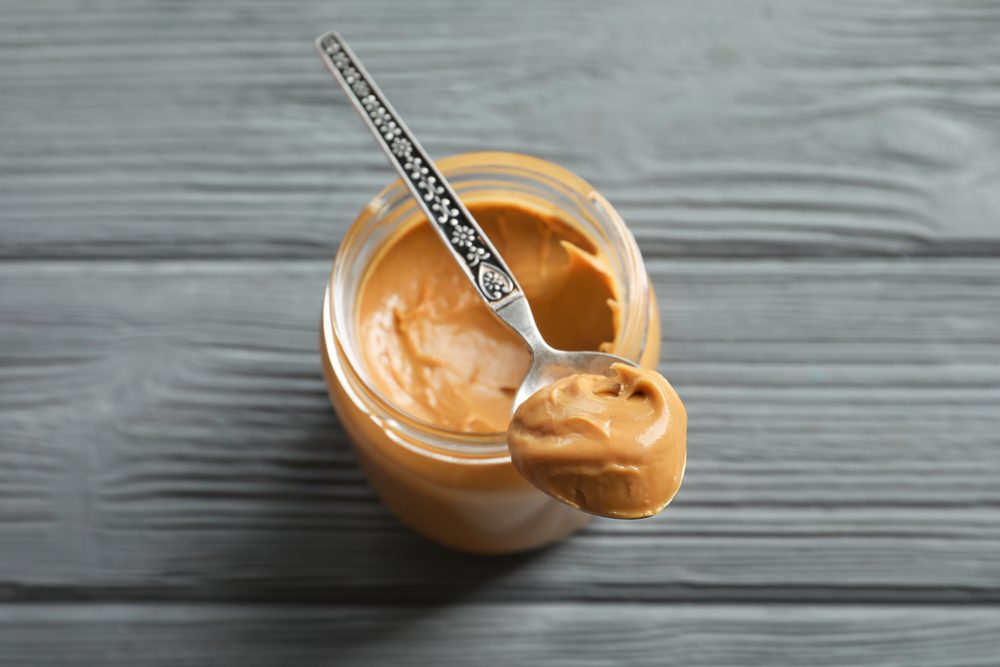
Constipation remedy: Healthy fats
Olive oil, nuts, and avocados all contain healthy fats, which can help lubricate your intestines and ease constipation, according to the experts at Harvard Medical School. A salad with fiber-rich leafy greens and a simple olive oil dressing, a small handful of nuts, or a tablespoon of natural nut butter on fruit or toast are good options. Even if you’re watching your weight, healthy fats are necessary for basic body functions; they are very satiating to keep you satisfied with less.

Constipation remedy: Lemon water
The citric acid in lemon juice acts as a stimulant to your digestive system and can help flush toxins from your body, providing constipation relief. Squeeze fresh lemon juice into a glass of water every morning, or add lemon to tea; you may find that the refreshingly tart water not only acts as a natural remedy to your constipation but also that it helps you drink more water each day, which will improve your long-term digestion. And don’t be afraid to warm it up, says the American Cancer Society, sharing that warm or hot fluids can also be a helpful treatment. On the flip side, avoid these foods that are bad for your digestive system.

Constipation remedy: Coffee
Coffee can stimulate your colon and speed up your trip to the bathroom. Other hot drinks work as home remedies for constipation too: Herbal tea or a cup of hot water with a little lemon juice (a natural laxative) or honey may stimulate your colon as well. Coffee is also a diuretic, however, so make sure to keep drinking water or your constipation could become worse, according to Harvard Medical School experts.
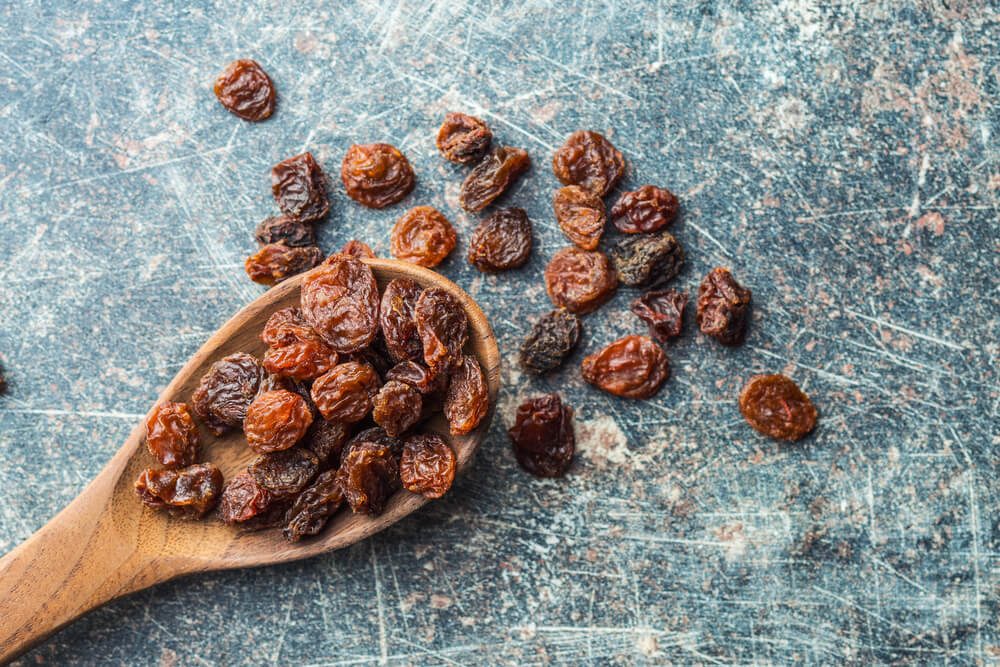
Constipation remedy: Raisins
High in fiber, according to Stanford Children’s Health, raisins also contain tartaric acid, which has a laxative effect. Cherries and apricots are also rich in fiber and can help kick your constipation. Eat these fruits with a bowl of yogurt for the added benefits of gut-soothing probiotics. Try eating these other 15 foods that are natural laxatives.
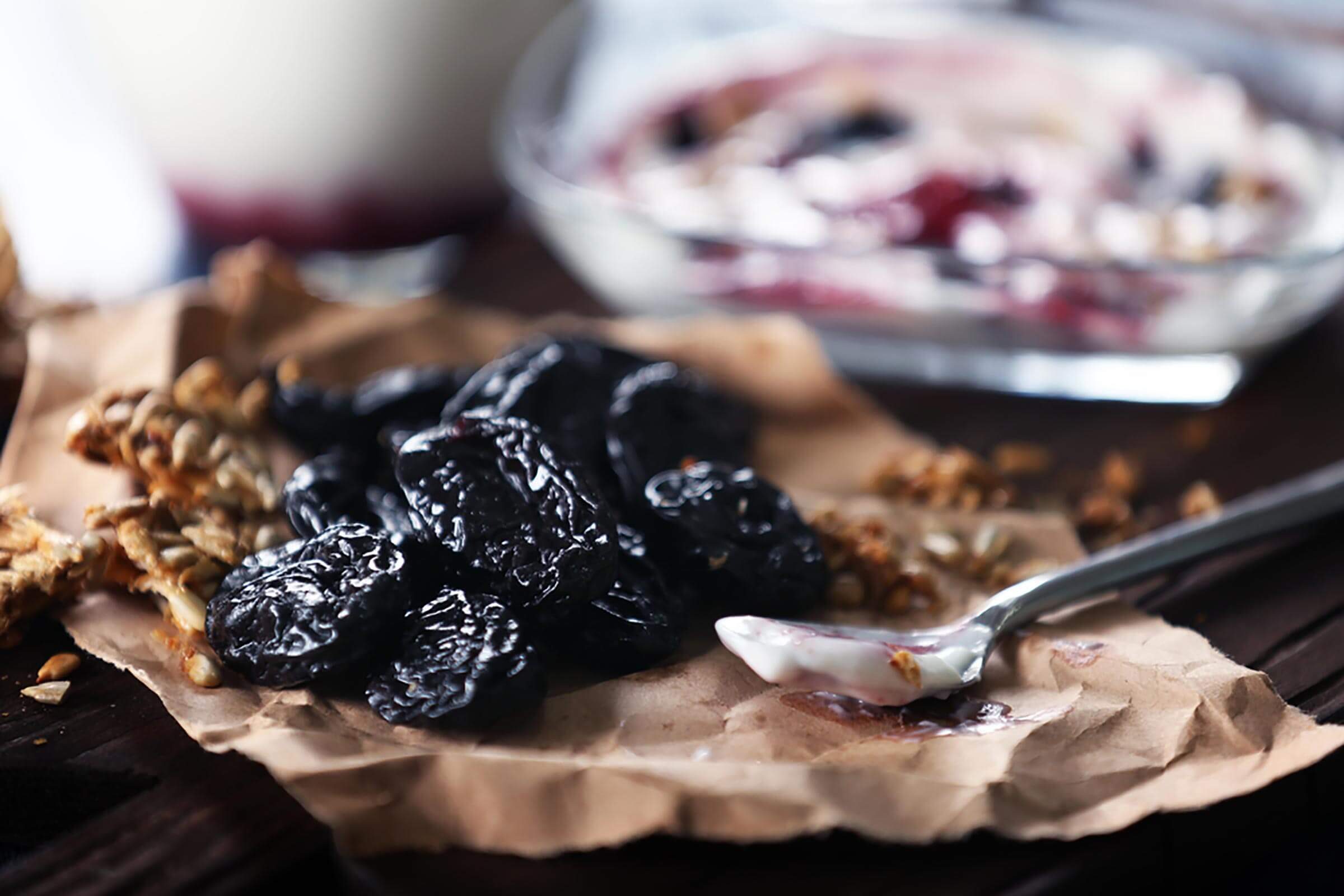
Constipation remedy: Prunes
These fiber-rich fruits are a go-to home remedy for getting your digestion back on track. Three prunes have 3 grams of fiber, and they also contain a phenolic compound that triggers the intestinal contraction that makes you want to go. Another great dried fruit choice is figs, which may not cause as much bloating as prunes. Johns Hopkins Women’s Center For Pelvic Health recommends an easy recipe using prune juice to improve bowel regularity. Learn the best ways to avoid constipation while traveling.

Constipation remedy: Castor oil
This home remedy for constipation has been handed down for generations. One of the primary uses for castor oil is as a laxative, according to Cleveland Clinic; take one to two teaspoons on an empty stomach and you should see results in about eight hours. Why? A component in the oil breaks down into a substance that stimulates your large and small intestines.

Constipation remedy: Exercise
The Mayo Clinic promotes exercise as a way to increase muscle activity in your intestines. Even a daily 15-minute walk can help move food through your bowel more quickly. If you feel sleepy after a heavy meal, try to move around instead of lying down. Jump-starting the digestive process can help you avoid that painfully full feeling that often follows a large meal. Next, learn some more home remedies for constipation that don’t involve what you eat.